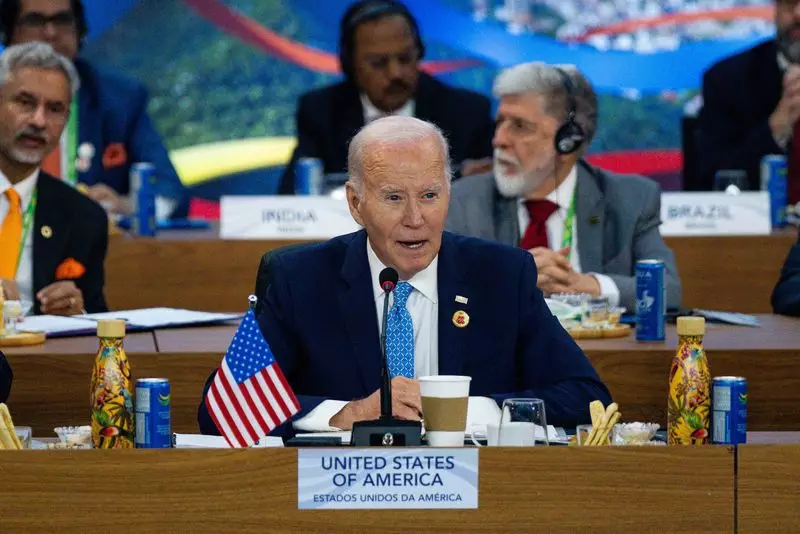In a significant move aimed at bolstering support for impoverished nations, President Joe Biden has announced a unprecedented pledge of $4 billion to the International Development Association (IDA) fund of the World Bank. This announcement, made during a private session of the G20 summit held in Rio de Janeiro, highlights the U.S. government’s commitment to addressing global poverty and enhancing international cooperation. This financial contribution is noteworthy not only because of its size but also due to its implications for future foreign aid policies.
With this new commitment, Biden’s administration surpasses the previous $3.5 billion allocation made during the last IDA replenishment in December 2021. Such a substantial increase, representing approximately a 14.3% rise from prior contributions, reflects a strategic shift in U.S. foreign policy, particularly under Biden’s leadership, which emphasizes global engagement in combating systemic issues like poverty and climate change. Experts anticipate that this sizeable investment could set a precedent for other nations, potentially catalyzing increased global financial commitments towards the IDA fund.
Despite the optimism surrounding this pledge, the political landscape in the U.S. raises evident uncertainties about the future of foreign aid. Notably, President-elect Donald Trump has a history of proposing cuts to foreign assistance, which could jeopardize Biden’s ambitious plans. The dynamics of congressional approval also pose a challenge, as appropriations for foreign aid may be stalled or altered once the new administration takes office in January. The recent emphasis on slashing government spending by the incoming leadership signals a potential reevaluation of existing commitments, complicating Biden’s promise.
The IDA fund aims to support the world’s most vulnerable nations through grants and low-interest loans, playing a crucial role in their economic recovery and sustainable development. With pressing issues such as crippling debt, climate crises, and conflicts affecting these nations, the World Bank, under President Ajay Banga’s guidance, is striving for a record replenishment that could exceed previous totals significantly. As calls for increased assistance converge amidst escalating demands, the planned pledging conference on December 6 becomes increasingly critical. Banga’s ambitious goal of achieving a $120 billion replenishment underscores the pressing needs of low-income countries in navigating a multitude of economic and environmental challenges.
As the world observes this pivotal moment in global development funding, the outcome will heavily rely on bipartisan support within the U.S. Congress alongside other countries’ willingness to increase their contributions. The Biden administration’s commitment could reshape the contours of international development funding, stimulating vital resources necessary for addressing urgent socio-economic disparities. While the path forward remains unclear, the commitment to the IDA fund symbolizes a renewed focus on collaborative efforts to alleviate poverty and foster sustainable economic growth worldwide. The interplay of domestic political considerations and international commitments will determine the ultimate impact of this pledge in the months and years to come.

